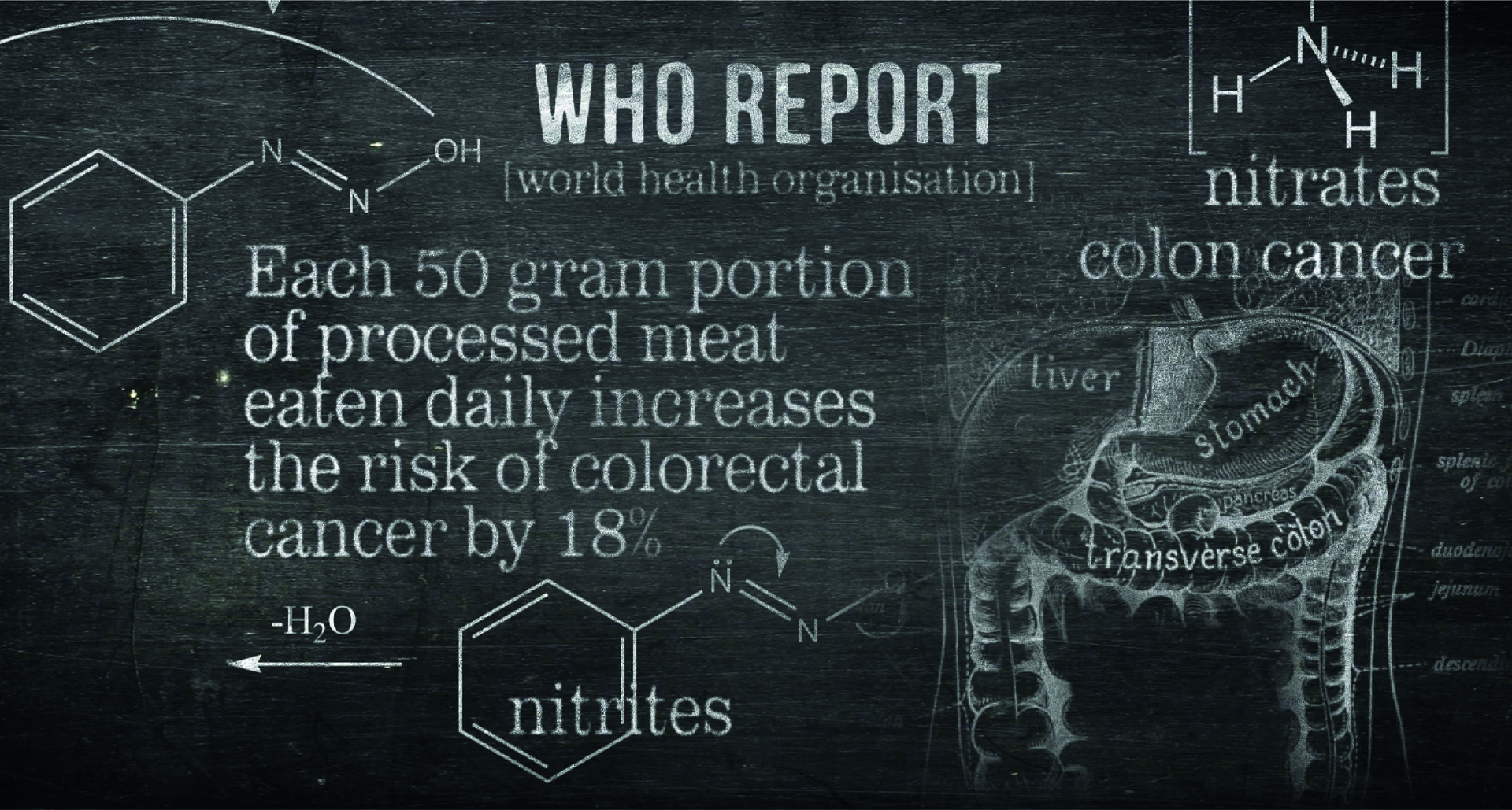Nitrites | The Cancer Risk
Food and health experts say nitrites added to bacon
and ham create cancer-causing chemicals in your stomach...
...And 6,600 cases of colorectal cancer every year in the UK
are directly linked to diets high in processed meats.
6,600
UK cancer cases annually
That's four times the number of fatalities on UK roads over the same period.
34,000
Cancer cases worldwide annually
The number of colorectal cancer cases every year that can be directly attributed to diets high in processed meats, according to the World Health Organisation.
18%
Increased risk
of bowel cancer
Increased risk of contracting bowel cancer if you eat 50g of processed meat a day.
Nitrates and nitrites are used as additives to improve food quality and protect against contamination - but are sources of N-nitroso compounds which are known carcinogens.
Professor Chris Elliot
Queen's University Belfast | 2017
Scientists define processed meat as:
Meat that has been cured with nitrites and/or smoked...
...And they have directly linked nitrite-cured meat to:
Colorectal cancer, breast cancer, diabetes and mental health problems.
Nitrites from nitrosamines
(many of which are carcinogens).
Central Science Laboratory
UK Government Executive Agency | 2003
15%Increased risk of
breast cancer
Increased risk of women developing breast cancer when they ate even small and infrequent servings of nitrite-cured meat.
Glasgow University, 2018
There is strong evidence that
processed meats - even in small
quantities - increase cancer risk.
World Cancer Research Fund
People suffering mental health problems
3 TIMES
more likely to have consumed nitrites
People hospitalised with mental health problems
are three times more likely to have eaten
nitrite-cured meats before their manic episode
Johns Hopkins University 2018
Nitrites are the next sugar [...] Given the emerging
scientific evidence that nitrite-cured processed meats
like bacon and ham produce cancer causing
chemicals and increase the risk of colorectal cancer.
I am very surprised how little response there has
been from some businesses selling these products.
Professor Corinna Hawkes
Director of the Centre for Food Policy, City University London








